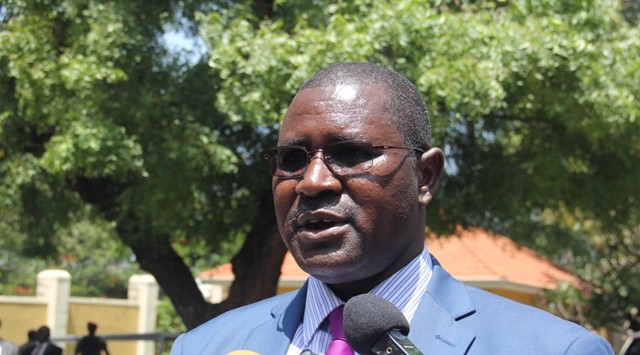South Sudan’s Vice President James Wani Igga has asked Ugandan, Kenyan, and Ethiopian leaders to allow South Sudan to deposit pounds instead of dollars in their countries in exchange for their local currencies.
According to Commerce Undersecretary Simon Nyang, the vice president invited government representatives from Uganda, Kenya, Rwanda, and Ethiopia to visit Juba on 5 May 2015 for a workshop on how they can start such a system.
“If you are going to Uganda, you have to deposit your local currency and you received them by Ugandan Shilling,” Nyang explained. “If you are going to Kenya, you will receive it by Kenyan Shilling. If you go to Addis, you received them by Birr.”
“[The Vice President] talked to President of Uganda Museveni, and he accepted,” Nyang added.
Nyang said this development is part of a plan to ease the worsening economic situation int he country. The SSP is now trading at 9 to the dollar on the black market.
Food imports
In addition to seeking foreign currency outside the dollar, South Sudan’s government is also trying to bring in food from neighboring countries, Nyang said.
The undersecretary said the national government will import sorghum and maize from Rwanda, Tanzania, and Sudan within a week. He said the government will also purchase locally grown food in Magwi and Yei Counties to distribute to the states.
“Concerning the shortages of food, there is no worry for that,” Nyang said. “The government is working on it. There is shortage in the food but not hunger in South Sudan.”
The undersecretary called upon local producers to offer prices so the government can negotiate purchasing for the next three months.
“There are people saying that they are not getting dollars but our target and planning is only to rescue three months,” Nyang said. “We are planning also to pay the cost of transport for people who have goods to the states, and also those have goods, sorghum and maize to come to the ministry and share their price with government.”
Radio Tamazuj Photo: Simon Nyang undersecretary of Commerce speaks to the press in Juba




